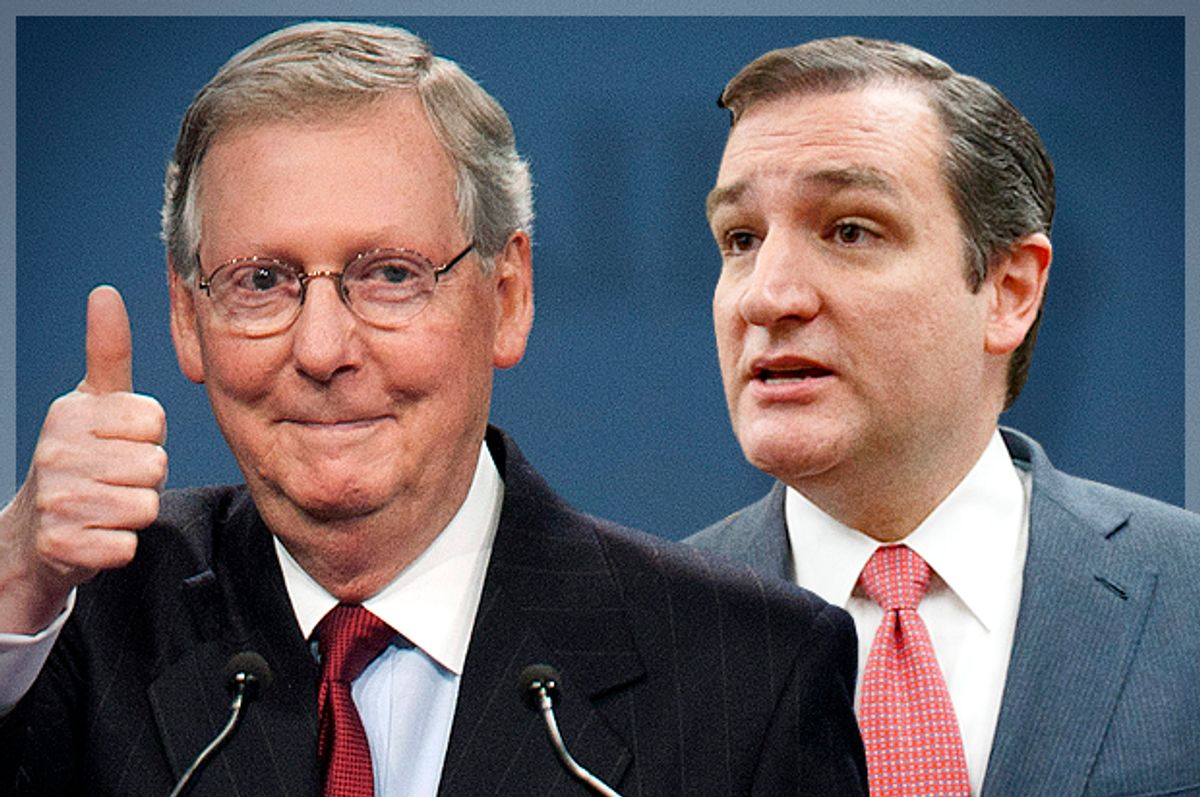There was never a particularly strong chance that Allison Lundergan Grimes was going to squeak out a win against Mitch McConnell, particularly as polling in the last couple of weeks trended in McConnell’s favor, but most people expected at least a bit of a fight, some suspense as to the final outcome.
But no. The moments polls closed in Kentucky, most networks and wires called the race for McConnell, sending him to the Senate for a sixth term. If enough seats go Republican tonight, he’s the heavy favorite to become the next Senate majority leader.
So what does it all mean? Well, for all of McConnell’s weaknesses as a candidate, and for all the anti-incumbent, anti-Washington, anti-gridlock frustration among the electorate, it turns out that voters also really like having political leaders with power who can wield it on their behalf. Grimes’ campaign was focused relentlessly on painting McConnell as a creature of the Washington establishment and someone who’d grown too comfortable in power. McConnell’s response was to revel in that power and let voters know that he’s a very influential man.
During his debate with Grimes, the first question McConnell got was an offer to reassure Kentucky voters that he wasn’t just running so that he could become majority leader. He didn’t answer the question, but at several points throughout the rest of the debate he made references to his likely promotion. “There's a great likelihood that I will be the leader of the majority in the Senate next year,” McConnell said at one point. “So one of the basic questions here is who can do the most for Kentucky over the next six years?”
As MSNBC’s Irin Carmon points out, McConnell’s closing pitch to the state was to point out that he and fellow Kentucky Republican (and likely presidential candidate) Rand Paul could potentially tag-team to give Kentucky some real sway in Washington:
Earlier in the week, McConnell had crisscrossed the state with Kentucky’s other senator, the more popular Rand Paul, telling voters they had an opportunity to play a rare outsized role in national politics. The implication: Mitch McConnell as Senate Majority Leader, Rand Paul as president. That’s not quite in the bag yet, to say the least, but McConnell just got one step closer to making that dream come true.
What McConnell’s win and likely ascension to Senate leadership means for the rest of us is an almost guaranteed continuation of the gridlock and intransigence that has been the norm ever since 2010. McConnell has said as much, promising budget fights as part of a strategy to repeal Obamacare and undo the rest Obama agenda. He's not likely to find much success, given that the president still wields his veto pen.
And whether he becomes majority leader or not, he’ll still have to deal with a Republican Senate caucus that has an unruly and uncooperative faction, led by Ted Cruz, that won’t allow any sort of compromise with Democrats or the White House (which McConnell has been known to do, but only when he has absolutely no other option).

Shares